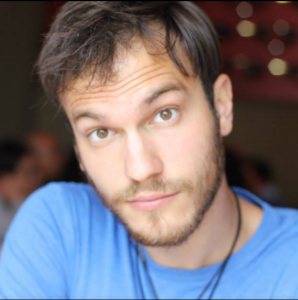ESR 2
Name: Jose Manuel Villarejo Ramos
Host Organization: BfR (German Federal Institute for Risk Assessment)
Project Title: Application and quantification of mechanical load to a 3D bone-tissue analogue within a microfluidic device – bone-on-a-chip

Bone is a highly vascularized organ with a wide variety of functions within the body such as mechanical support, mineral homeostasis and hematopoiesis. Given the mechanical cues that bone tissue is subjected to, a 2-dimensional classical cell culture cannot offer enough information to study physiologic responses of bone cells. Therefore, the culture of bone cells as a 2D monolayer is of limited translational value. The main objective of the bone-on-a-chip project is to develop a biomimetic device which can be used to study bone tissue within a simple and automatized system under physiologic conditions. The project englobes several technical disciplines, such as automatization software development, sensors engineering, cell biology and biomaterials.
Still pendant to decide.
I was born in a small city in the south of Spain called Ronda. Since I was a child my parents cultivated my interest in science using children books (nature, animals, dinosaurs, space, etc). My interest grew when I got to high school thanks to good teachers that explained science using an interesting way for a teenager. Eventually, I enrolled in a bachelor in Biochemistry and Biotechnology in the University of Sevilla.
Since I finished my bachelor degree, I have worked in several different research labs to get more experience and find a field that fits my interests. I have studied in France, Austria and recently in the USA, where I was part of a project at Harvard Medical School. Through an internship carried on 2016 in the department of medical physics of Vienna medical university, I started to discover how much I enjoyed the interface between biology and engineering. From that point I dedicated myself to gain more insights on engineering in order to complete my education in the scientific field.
My stay in Harvard helped to open my creativity and see the possibilities given by the bioengineering field. After an incredible experience during 6 months I came back to Europe to work in various projects of bioreactors and bioprinting while I was searching for a Phd position. During my search I found the EUROoC project and decide to apply. My attention was attracted to Bone-chip as several multidisciplinary skills where necessary for the project. The development of my bioengineering abilities and the learning of new ones will help me to grow as a scientist.


 This project has received funding from the European Union’s Horizon 2020 research and innovation programme under grant agreement No. 812954.
This project has received funding from the European Union’s Horizon 2020 research and innovation programme under grant agreement No. 812954.